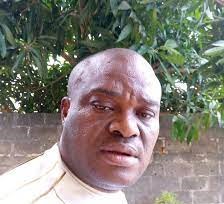By Abraham Amah
Few days ago, a Federal High Court sitting in Abuja ordered the new government of President Bola Ahmed Tinubu to provide details of how the previous governments from 1999-2023, spent the $5bn recovered from the Abacha family, following a suit filed by the Socio-Economic Rights and Accountability Project, SERAP. The court ordered the government of President Bola Ahmed Tinubu to “disclose the exact amount of money stolen by the ex-head of state, Abacha from Nigeria, and the total amount of the Abacha loot recovered and all agreements signed on same by the governments of former Presidents Obasanjo, Yar’Adua, Jonathan and Buhari.”
Apparently, this judgment is a triumph of justice for SERAP that instituted the case against the Federal Government and millions of Nigerians who have been denied the knowledge of how the Abacha loot was spent because that information has been shrouded in secrecy as long as it has endured. Flowing from the fountain of the Freedom of Information Act, FOI which empowers citizens to seek to know how their affairs are run by public servants/institutions, SERAP approached the court and the courts dutifully gave the said order. The order goes a long way to protect the mechanisms that strengthen institutions that serve Nigerians for good governance through accountability and transparency.
Instructively, the moral value of that court order is as high as the political consequences it throws into the polity. In the first place, the court order is nothing short of a probe of the previous governments and the current political climate does not support such a confrontational position from a government that is grappling with the precipitous economic decline the country witnessed in the recent past. It would only amount to a distraction for the new President who in the last six weeks has taken measures to reverse many of the policies that brought harsh economic consequences to Nigerians. A probe of this magnitude would only divert his attention from the more serious challenges of building a viable economy to reduce the grinding poverty that stares millions of Nigerians in the face everyday.
Secondly, the present government is still grappling with legitimacy arising from the multiple election cases against the President and the fact that one of those that is contesting the electoral victory of President Bola Tinubu is Alhaji Atiku Abubakar who served as Vice President to President Olusegun Obasanjo. The court order translates to an indirect probe of Alhaji Atiku Abubakar and this may look more like a political witch hunt that would further debase the legitimacy of the President which is already in question.
While one is not against the idea of making public the details of how the recovered Abacha loot was spent, the burden of disclosure should be on institutions that received and released the recovered money to different expenditure headings; notably the Central Bank of Nigeria, CBN and the Federal Ministry of Finance, FMF and not directly on the President as the court ordered. As institutions that receive and spend money on behalf of the Federal Government, both institutions should have records of how much was received, when it was received and how much was spent and for what reasons. Was the money used to finance budgets, deployed to Infrastructure or used to service debts? The CBN and FMF should have these details and providing them should not be difficult if they are up to their duties.
Rather than burden the Presidency with this kind of order, the court should have simply ordered the anti-graft agency, the Economic and Financial Crimes Commission, EFCC, to compel the Central Bank, the Federal Ministry of Finance and other relevant agencies of government to release details of all the Abacha loot and the transactions and agreements that followed it and save the Presidency from the political dust and noise his directives to his predecessors to account for the Abacha loot would raise.
If the Central Bank and the Ministry of Finance cannot provide these details without the intervention of the Presidency, then it calls to question the sustainability of these two institutions and by extension many others and how they have remained opaque and unaccountable in their dealings and in doing so, contributed to the re-looting of the Abacha funds and many others that have left Nigerians poorer even in the midst of plenty.
I have always maintained that one of the problems that confront us as a people is the lack of strong institutions that serve as a buffer as well as a hedge against seen and unforeseen public infractions and protect citizens from the harmful consequences of those violations. What the government needs to do is to channel efforts towards making each institution as strong, vibrant and viable as they should be so that they can function optimally and almost independently without having to rely on the push of a strong man to be what they are supposed to be.
Hon. Elder Abraham Amah is the Abia PDP Vice Chairman/ Acting State Publicity Secretary

